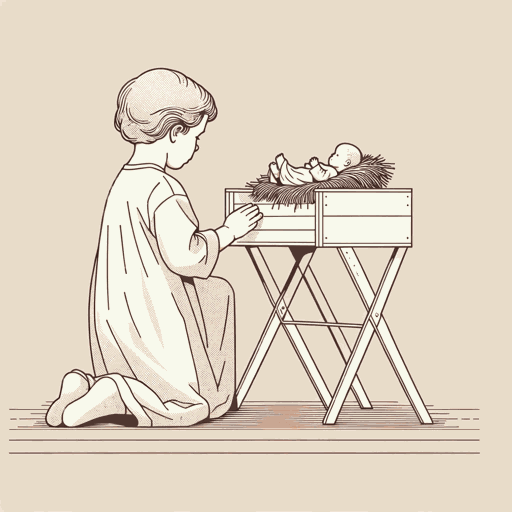38 pages • 1 hour read
Barbara RobinsonThe Best Christmas Pageant Ever
Fiction | Novel | Middle Grade | Published in 1972A modern alternative to SparkNotes and CliffsNotes, SuperSummary offers high-quality Study Guides with detailed chapter summaries and analysis of major themes, characters, and more.
Important Quotes
“The Herdmans were absolutely the worst kids in the history of the world. They lied and stole and smoked cigars (even the girls) and talked dirty and hit little kids and cussed their teachers and took the name of the Lord in vain and set fire to Fred Shoemaker’s old broken-down toolhouse.”
(Chapter 1, Page 1)
In the book’s first paragraph, the narrator is unequivocal in her perspective on the Herdmans. She describes them as a malevolent force of nature, each worse than the last, living only to cause harm. Despite their youth, they are also prone to adult vices and blasphemy. The narrator’s description is so absolute that it makes her change of heart at the end of the story more significant.
“My father said it was the only good thing the Herdmans ever did, and if they’d known it was a good thing, they wouldn’t have done it at all. They would have set fire to something else…or somebody.”
(Chapter 1, Page 3)
When the narrator’s father learns about the toolhouse burning down, he agrees that it was a blessing in disguise. The shed had been decrepit and infested with rats. If the Herdmans had known about its unattractive qualities, he thinks they would have been more careful. The fire foreshadows the Herdmans’ ability to create a positive result from a negative action.
“He went every year but it was always a struggle, and Mother said that was her contribution to the Christmas pageant—getting my father to go to it.”
(Chapter 2, Page 15)
The narrator’s father prefers not to attend the Christmas pageant. He says that it’s always the same. Her mother obviously feels obligated to make him go, but neither of them looks forward to it. She makes him go as part of a tradition as much as anything. Neither of them put much thought—on the page, at least—into why they are going.

